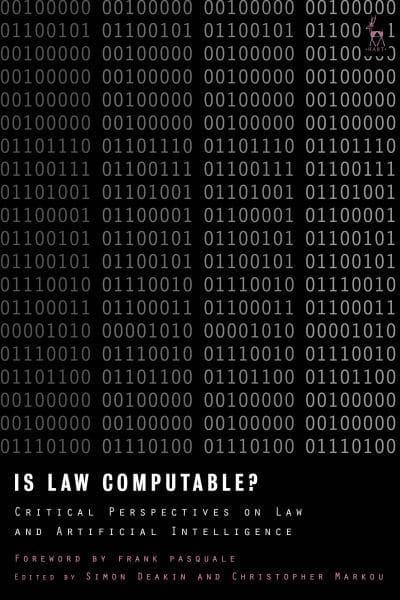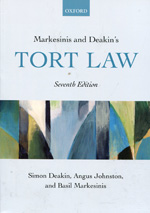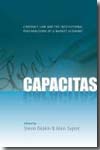Is law computable?
critical perspectives on law and artificial intelligence
- ISBN: 9781509945597
- Editorial: Hart Publishing
- Fecha de la edición: 2023
- Lugar de la edición: Oxford. Reino Unido
- Encuadernación: Rústica
- Medidas: 24 cm
- Nº Pág.: 320
- Idiomas: Inglés

What does computable law mean for the autonomy, authority, and legitimacy of the legal system? Are we witnessing a shift from Rule of Law to a new Rule of Technology? Should we even build these things in the first place? This unique volume collects original papers by a group of leading international scholars to address some of the fascinating questions raised by the encroachment of Artificial Intelligence (AI) into more aspects of legal process, administration, and culture. Weighing near-term benefits against the longer-term, and potentially path-dependent, implications of replacing human legal authority with computational systems, this volume pushes back against the more uncritical accounts of AI in law and the eagerness of scholars, governments, and LegalTech developers, to overlook the more fundamental - and perhaps 'bigger picture' - ramifications of computable law. With contributions by Simon Deakin, Christopher Markou, Mireille Hildebrandt, Roger Brownsword, Sylvie Delacroix, Lyria Bennet Moses, Ryan Abbott, Jennifer Cobbe, Lily Hands, John Morison, Alex Sarch, and Dilan Thampapillai, as well as a foreword from Frank Pasquale.
1. From Rule of Law to Legal Singularity
Simon Deakin, University of Cambridge, UK and Christopher Markou, University of Cambridge, UK
2. Ex Machina Lex: Exploring the Limits of Legal Computability
Christopher Markou, University of Cambridge, UK and Simon Deakin, University of Cambridge, UK
3. Code-driven Law: Freezing the Future and Scaling the Past
Mireille Hildebrandt, Vrije Universiteit Brussel, Belgium
4. Towards a Democratic Singularity? Algorithmic Governmentality, the Eradication of Politics ? And the Possibility of Resistance
John Morison, Queen's University, Belfast, UK
5. Legal Singularity and the Reflexivity of Law
Jennifer Cobbe, University of Cambridge, UK
6. Artificial Intelligence and Legal Singularity: The Thin End of the Wedge, the Thick End of the Wedge, and the Rule of Law
Roger Brownsword, King's College London, UK
7. Automated Systems and the Need for Change
Sylvie Delacroix, University of Birmingham, UK
8. Punishing Artificial Intelligence: Legal Fiction or Science Fiction
Ryan Abbott, University of Surrey, UK and Alex Sarch, University of Surrey, UK
9. Not a Single Singularity
Lyria Bennett Moses, UNSW Sydney, Australia
10. The Law of Contested Concepts? Reflections on Copyright Law and the Legal and Technological Singularities
Dilan Thampapillai, ANU College of Law, Australia
11. Capacitas Ex Machina: Are Computerised Assessments of Mental Capacity a 'Red Line' or Benchmark for AI?
Christopher Markou, University of Cambridge, UK and Lily Hands, University of Cambridge, UK
Foreword by Frank Pasquale.









